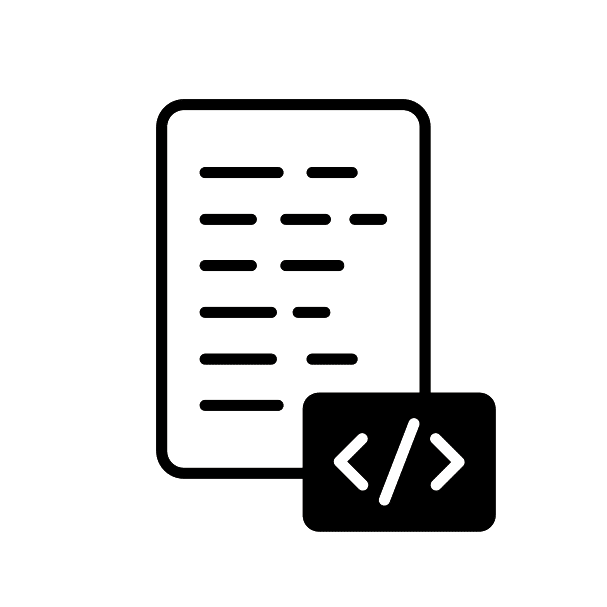Discover the art of constructing and launching Android applications using Android Studio, Google’s open-source platform designed for mobile development.

Our teachers and tutors graduated from top universities








Overview

Customised coding curriculum
Select your preferred coding languages or topics, and we'll connect you with an expert tutor who will ensure you're well-versed.

Test taking strategies
Get diagnosed about your weaknesses and strengths, and learn how to optimize your performance.

Private lesson
No need to accommodate other students. Learning is customised your perfect pace and difficulty so you are always improving.
About Android
Android represents more than just a mobile OS; it constitutes a comprehensive ecosystem that has fundamentally transformed our digital interactions. Rooted in a modified Linux kernel and an array of open-source software, Android offers an open platform fostering innovation and adaptability. This adaptability has led to its widespread adoption across a myriad of devices, spanning smartphones, tablets, smart TVs, and even automobiles, showcasing its incredible versatility and scalability.
The distinguishing feature of Android is its expansive and ever-expanding app marketplace, the Google Play Store. This digital marketplace boasts millions of apps catering to diverse needs, from social networking and entertainment to productivity and finance. Thanks to its open-source nature, Android allows developers to craft applications tailored to specific requirements, serving both individual consumers and large enterprises. In essence, Android transcends its role as a mere mobile OS; it is a robust software development platform, providing a rich assortment of APIs and development tools that streamline the development process.
For developers, Android offers numerous advantages. Its well-documented Software Development Kit (SDK) is supported by a thriving community, facilitating issue resolution and the sharing of solutions. Developers have the flexibility to code Android applications using familiar languages like Java, Kotlin, or C++. Additionally, the Android Studio Integrated Development Environment (IDE) supplies a comprehensive suite of potent tools to aid in coding, debugging, and testing, ultimately enhancing development efficiency.
From an educational standpoint, Android development serves as a fertile ground for imparting programming and software development knowledge. The platform’s robust APIs and abundant developer resources make it an ideal choice for teaching coding fundamentals, software architecture, and UI/UX design. Many educational institutions have introduced Android development courses, recognizing its significance in preparing students for the modern job market and understanding its pivotal role in shaping the future of technology.
Android isn’t merely an operating system; it stands as a dynamic platform propelling technological innovation. Its impact extends beyond mobile devices, reshaping our digital interactions and offering boundless opportunities for developers, businesses, and end-users alike. With its commitment to openness, customization, and user-centric design, Android remains poised to continue its crucial role in the ongoing evolution of technology.
Description
Android Studio, the official Integrated Development Environment (IDE) for Android app development, offers a comprehensive platform for building apps across various Android devices. It supports both Java and Kotlin languages and is utilized by industry giants like Google, Samsung Electronics, and Disney.
Our course provides hands-on experience in creating Android apps, covering topics from user interface design to data storage and integration of external services. By mastering Android app development, you’ll gain a valuable skill set sought after in today’s mobile-driven tech industry.
What you will learn
- Install and configure Android Studio on your computer
- Develop and publish Android applications using Android Studio
- Efficiently modify and troubleshoot Android apps directly within the IDE
Requirements
- Ages 13 and above. The programming language is text-based and requires literacy to learn
- Beginners interested in developing Android apps
- App developers looking for guidance on how to use Android Studio
Student FAQs About Mobile App Development with Android
The Android Software Development Kit (SDK) comprises a collection of essential software tools and libraries indispensable for Android app development. It encompasses a debugger, libraries, an emulator, comprehensive API documentation, sample code, and instructive tutorials. For developers venturing into Android application creation, the SDK serves as an indispensable toolkit.
Android development primarily harnesses the capabilities of Java, Kotlin, and C++. Kotlin is gaining increasing popularity due to its robust null-safety features and succinct syntax. While Java remains the conventional language for Android, Kotlin is now officially endorsed, offering modern functionalities. C++, on the other hand, is typically reserved for performance-intensive tasks.
Android Studio stands as the official Integrated Development Environment (IDE) tailored for Android app development. It boasts an array of features, including visual layout editors, code editors replete with real-time suggestions, debugging utilities, and emulation capabilities. Android Studio simplifies various tasks, enabling developers to concentrate on crafting high-quality apps.
In the realm of Android development, Fragments are modular, reusable components constituting a portion of an app’s user interface. They empower developers to construct dynamic UIs adaptable to varying screen sizes and orientations. Fragments contribute significantly to enhancing user experiences by disassembling intricate UI elements into manageable, interchangeable modules.
Within the Android framework, an Activity represents a solitary, user-focused task that can be performed. Essentially, it equates to a screen that engages with the user. Activities are organized in a back stack, which oversees navigation between them. A profound comprehension of the Activity lifecycle is pivotal for crafting seamlessly functioning applications.
How it works
1
Request a tutor
Let us know your goals and age range. We'll figure out a plan to help get you there.
2
Match with a tutor
We'll recommend you a tutor based on your needs and goals, or you can request a specific tutor.
3
Start a free trial
Experience a free trial lesson with your new tutor and see if your learning style matches.
4
Keep it up!
If everything went well, sign up to keep going! You can choose the pacing of the lessons
Need more info?
Let's talk.
Leave your phone number, and we’ll call you back to discuss how we can help you.


